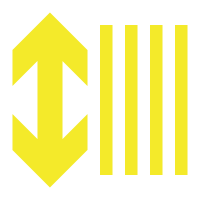译典友情编辑(建议登录会员后操作)

编辑说明:您可以直接修改编辑中英文词条(句子),也可以在备注栏输入补充解释和支持材料,甚至可以上传图片。您编辑的内容将以署名方式展示给其他用户。您的参与,是我们的荣耀。我们建议您先登录/注册本站会员,认领本词条的编辑权。译典的蓬勃发展离不开您的支持。

通译语典文库是一部经典文章集合。通过上下文来限定语句直至词语的语境, 获取最准确的语义,直达翻译佳境!
正文
目录
文库目录
文库收藏
中文百科
Wiki百科
属类:
双语小说
【分类】古汉语经典
-[作者: 孔子]
阅读:[4689]


《
字+字-
行+行-
页+页-

 字+字-
行+行-
页+页-
》
字+字-
行+行-
页+页-
》
-
5.1 子谓公冶长:“可妻也。虽在缧绁之中,非其罪也。”以其子妻之。
1

读书笔记
是否公开
-
5.2 子谓南容:“邦有道,不废;邦无道,免於刑戮。”以其兄之子妻之。
2

读书笔记
是否公开
-
5.3 子谓子贱:“君子哉若人!鲁无君子者,斯焉取斯?”
3

读书笔记
是否公开
-
5.4 子贡问曰:“赐也何如?”子曰:“女,器也。”曰:“何器也?”曰:“瑚琏也。”
4

读书笔记
是否公开
-
5.5 或曰:“雍也仁而不佞。”子曰:“焉用佞?御人以口给,屡憎於人。不知其仁,焉用佞?”
5

读书笔记
是否公开
-
5.6 子使漆雕开仕。对曰:“吾斯之未能信。”子说。
6

读书笔记
是否公开
-
5.7 子曰:“道不行,乘桴浮于海。从我者,其由与?”子路闻之喜。子曰:“由也好勇过我,无所取材。”
7

读书笔记
是否公开
-
5.8 孟武伯问:“子路仁乎?”子曰:“不知也。”又问。子曰:“由也,千乘之国,可使治其赋也,不知其仁也。”“求也何如?”子曰:“求也,千室之邑,百乘之家,可使为之宰也,不知其仁也。”“赤也何如?”子曰:“赤也,束带立于朝,可使与宾客言也,不知其仁也。”
8

读书笔记
是否公开
-
5.9 子谓子贡曰:“女与回也孰愈?”对曰:“赐也何敢望回?回也闻一以知十,赐也闻一以知二。”子曰:“弗如也;吾与女弗如也。”
9

读书笔记
是否公开
-
5.10 宰予昼寝。子曰:“朽木不可雕也,粪土之墙不可圬也;于予与何诛?”子曰:“始吾于人也,听其言而信其行;今吾于人也,听其言而观其行。于予与改是。”
10

读书笔记
是否公开
-
5.11 子曰:“吾未见刚者。”或对曰:“申枨。”子曰:“枨也欲,焉得刚?”
11

读书笔记
是否公开
-
5.12 子贡曰:“我不欲人之加诸我也,吾亦欲无加诸人。”子曰:“赐也,非尔所及也。”
12

读书笔记
是否公开
-
5.13 子贡曰:“夫子之文章,可得而闻也;夫子之言性与天道,不可得而闻也。”
13

读书笔记
是否公开
-
5.14 子路有闻,未之能行,唯恐有闻。
14

读书笔记
是否公开
-
5.15 子贡问曰:“孔文子何以谓之‘文’也?”子曰:“敏而好学,不耻下问,是以谓之‘文’也。”
15

读书笔记
是否公开
-
5.16 子谓子产:“有君子之道四焉:其行已也恭,其事上也敬,其养民也惠,其使民也义。”
16

读书笔记
是否公开
-
5.17 子曰:“晏平仲善与人交,久而敬之。”
17

读书笔记
是否公开
-
5.18 子曰:“臧文仲居蔡,山节藻梲,何如其知也?”
18

读书笔记
是否公开
-
5.19 子张问曰:“令尹子文三仕为令尹,无喜色;三已之,无愠色。旧令尹之政,必以告新令尹。何如?”子曰:“忠矣。”曰:“仁矣乎?”曰:“未知。焉得仁?”“崔子弑齐君,陈文子有马十乘,弃而违。至于他邦,则曰:‘犹吾大夫崔子也。’违之。之一邦,则又曰:‘犹吾大夫崔子也。’违之。何如?”子曰:“清矣。”曰:“仁矣乎?”曰:“未知。焉得仁?”
19

读书笔记
是否公开
-
5.20 季文子三思而后行。子闻之,曰:“再,斯可矣。”
20

读书笔记
是否公开
-
5.21 子曰:“宁武子,邦有道,则知;邦无道,则愚。其知可及也,其愚不可及也。”
21

读书笔记
是否公开
-
5.22 子在陈,曰:“归与!归与!吾党之小子狂简,斐然成章,不知所以裁之。”
22

读书笔记
是否公开
-
5.23 子曰:“伯夷、叔齐不念旧恶,怨是用希。”
23

读书笔记
是否公开
-
5.24 子曰:“孰谓微生高直?或乞醯焉,乞诸其邻而与之。”
24

读书笔记
是否公开
-
5.25 子曰:“巧言、令色、足恭,左丘明耻之,丘亦耻之。匿怨而友其人,左丘明耻之,丘亦耻之。”
25

读书笔记
是否公开
-
5.26 颜渊、季路侍。子曰:“盍各言尔志?”子路曰:“愿车马衣轻裘与朋友共,敝之而无憾。”颜渊曰:“愿无伐善,无施劳。”子路曰:“愿闻子之志。”子曰:“老者安之,朋友信之,少者怀之。”
26

读书笔记
是否公开
-
5.27 子曰:“已矣乎!吾未见能见其过而内自讼者也。”
27

读书笔记
是否公开
-
5.28 子曰:“十室之邑,必有忠信如丘者焉,不如丘之好学也。”
28

读书笔记
是否公开
-
The Master said of Kung-ye Ch’ang that he might be wived; althoughhe was put in bonds, he had not been guilty of any crime. Accordingly,he gave him his own daughter to wife.
1

读书笔记
是否公开我的读书笔记
仅对会员开放网友的读书笔记
仅对会员开放
-
Of Nan Yung he said that if the country were well governed he wouldnot be out of office, and if it were in governed, he would escapepunishment and disgrace. He gave him the daughter of his own elderbrother to wife.
2

读书笔记
是否公开我的读书笔记
仅对会员开放网友的读书笔记
仅对会员开放
-
The Master said of Tsze-chien, "Of superior virtue indeed is sucha man! If there were not virtuous men in Lu, how could this man haveacquired this character?"Tsze-kung asked, "What do you say of me, Ts’ze!" The Master said,"You are a utensil." "What utensil?" "A gemmed sacrificial utensil."Some one said, "Yung is truly virtuous, but he is not ready with histongue."The Master said, "What is the good of being ready with the tongue?
3

读书笔记
是否公开我的读书笔记
仅对会员开放网友的读书笔记
仅对会员开放
-
They who encounter men with smartness of speech for the most partprocure themselves hatred. I know not whether he be truly virtuous,but why should he show readiness of the tongue?"The Master was wishing Ch’i-tiao K’ai to enter an official employment.
4

读书笔记
是否公开我的读书笔记
仅对会员开放网友的读书笔记
仅对会员开放
-
He replied, "I am not yet able to rest in the assurance of this."The Master was pleased.
5

读书笔记
是否公开我的读书笔记
仅对会员开放网友的读书笔记
仅对会员开放
-
The Master said, "My doctrines make no way. I will get upon a raft,and float about on the sea. He that will accompany me will be Yu,I dare say." Tsze-lu hearing this was glad, upon which the Mastersaid, "Yu is fonder of daring than I am. He does not exercise hisjudgment upon matters."Mang Wu asked about Tsze-lu, whether he was perfectly virtuous. TheMaster said, "I do not know."He asked again, when the Master replied, "In a kingdom of a thousandchariots, Yu might be employed to manage the military levies, butI do not know whether he be perfectly virtuous.""And what do you say of Ch’iu?" The Master replied, "In a city ofa thousand families, or a clan of a hundred chariots, Ch’iu mightbe employed as governor, but I do not know whether he is perfectlyvirtuous.""What do you say of Ch’ih?" The Master replied, "With his sash girtand standing in a court, Ch’ih might be employed to converse withthe visitors and guests, but I do not know whether he is perfectlyvirtuous."The Master said to Tsze-kung, "Which do you consider superior, yourselfor Hui?"Tsze-kung replied, "How dare I compare myself with Hui? Hui hearsone point and knows all about a subject; I hear one point, and knowa second."The Master said, "You are not equal to him. I grant you, you are notequal to him."Tsai Yu being asleep during the daytime, the Master said, "Rottenwood cannot be carved; a wall of dirty earth will not receive thetrowel. This Yu,-what is the use of my reproving him?"The Master said, "At first, my way with men was to hear their words,and give them credit for their conduct. Now my way is to hear theirwords, and look at their conduct. It is from Yu that I have learnedto make this change."The Master said, "I have not seen a firm and unbending man." Someone replied, "There is Shan Ch’ang." "Ch’ang," said the Master, "isunder the influence of his passions; how can he be pronounced firmand unbending?"Tsze-kung said, "What I do not wish men to do to me, I also wish notto do to men." The Master said, "Ts’ze, you have not attained to that."Tsze-kung said, "The Master’s personal displays of his principlesand ordinary descriptions of them may be heard. His discourses aboutman’s nature, and the way of Heaven, cannot be heard."When Tsze-lu heard anything, if he had not yet succeeded in carryingit into practice, he was only afraid lest he should hear somethingelse.
6

读书笔记
是否公开我的读书笔记
仅对会员开放网友的读书笔记
仅对会员开放
-
Tsze-kung asked, saying, "On what ground did Kung-wan get that titleof Wan?"The Master said, "He was of an active nature and yet fond of learning,and he was not ashamed to ask and learn of his inferiors!-On thesegrounds he has been styled Wan."The Master said of Tsze-ch’an that he had four of the characteristicsof a superior man-in his conduct of himself, he was humble; in servinghis superior, he was respectful; in nourishing the people, he waskind; in ordering the people, he was just."The Master said, "Yen P’ing knew well how to maintain friendly intercourse.
7

读书笔记
是否公开我的读书笔记
仅对会员开放网友的读书笔记
仅对会员开放
-
The acquaintance might be long, but he showed the same respect asat first."The Master said, "Tsang Wan kept a large tortoise in a house, on thecapitals of the pillars of which he had hills made, and with representationsof duckweed on the small pillars above the beams supporting the rafters.-Ofwhat sort was his wisdom?"Tsze-chang asked, saying, "The minister Tsze-wan Thrice took office,and manifested no joy in his countenance. Thrice he retired from office,and manifested no displeasure. He made it a point to inform the newminister of the way in which he had conducted the government; whatdo you say of him?" The Master replied. "He was loyal." "Was he perfectlyvirtuous?" "I do not know. How can he be pronounced perfectly virtuous?"Tsze-chang proceeded, "When the officer Ch’ui killed the prince ofCh’i, Ch’an Wan, though he was the owner of forty horses, abandonedthem and left the country. Coming to another state, he said, ’Theyare here like our great officer, Ch’ui,’ and left it. He came to asecond state, and with the same observation left it also;-what doyou say of him?" The Master replied, "He was pure." "Was he perfectlyvirtuous?" "I do not know. How can he be pronounced perfectly virtuous?"Chi Wan thought thrice, and then acted. When the Master was informedof it, he said, "Twice may do."The Master said, "When good order prevailed in his country, Ning Wuacted the part of a wise man. When his country was in disorder, heacted the part of a stupid man. Others may equal his wisdom, but theycannot equal his stupidity."When the Master was in Ch’an, he said, "Let me return! Let me return!
8

读书笔记
是否公开我的读书笔记
仅对会员开放网友的读书笔记
仅对会员开放
-
The little children of my school are ambitious and too hasty. Theyare accomplished and complete so far, but they do not know how torestrict and shape themselves."The Master said, "Po-i and Shu-ch’i did not keep the former wickednessesof men in mind, and hence the resentments directed towards them werefew."The Master said, "Who says of Weishang Kao that he is upright? Onebegged some vinegar of him, and he begged it of a neighbor and gaveit to the man."The Master said, "Fine words, an insinuating appearance, and excessiverespect;-Tso Ch’iu-ming was ashamed of them. I also am ashamed ofthem. To conceal resentment against a person, and appear friendlywith him;-Tso Ch’iu-ming was ashamed of such conduct. I also am ashamedof it."Yen Yuan and Chi Lu being by his side, the Master said to them, "Come,let each of you tell his wishes."Tsze-lu said, "I should like, having chariots and horses, and lightfur clothes, to share them with my friends, and though they shouldspoil them, I would not be displeased."Yen Yuan said, "I should like not to boast of my excellence, nor tomake a display of my meritorious deeds."Tsze-lu then said, "I should like, sir, to hear your wishes." TheMaster said, "They are, in regard to the aged, to give them rest;in regard to friends, to show them sincerity; in regard to the young,to treat them tenderly."The Master said, "It is all over. I have not yet seen one who couldperceive his faults, and inwardly accuse himself."The Master said, "In a hamlet of ten families, there may be foundone honorable and sincere as I am, but not so fond of learning."
9

读书笔记
是否公开我的读书笔记
仅对会员开放网友的读书笔记
仅对会员开放会员文库收藏夹,将感兴趣的文章收录此处。注册会员即可以使用此功能
- 加入书架
-
回顶部
- 上一页阅读背景
- 下一页
-
回底部
译典文库友情编辑(建议登录会员后操作)


简典
×
![]()




